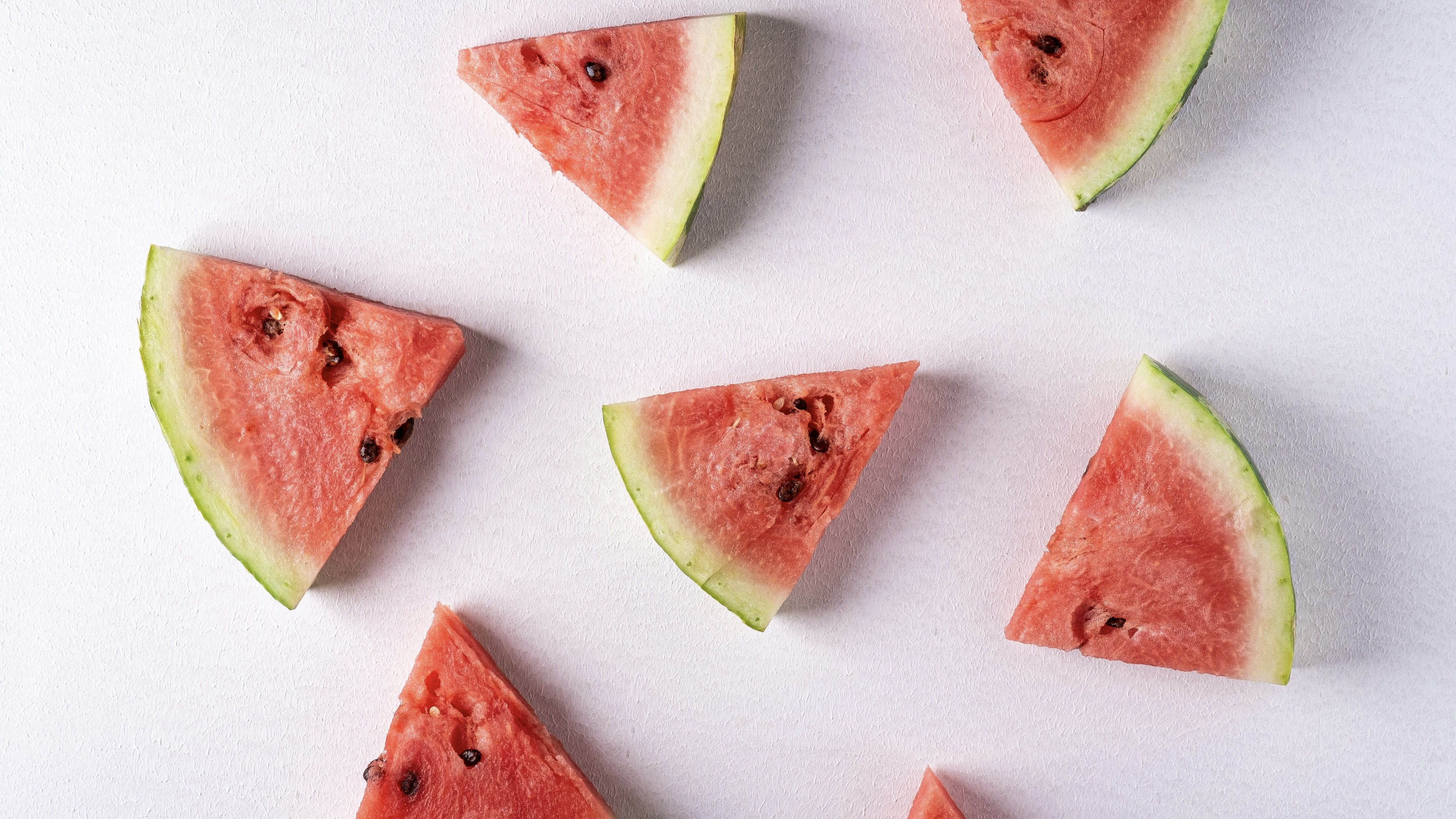5 most hydrating foods to eat during the heatwave
Bored of chugging water? Try these foods instead


Temperatures are rising again, and staying hydrated is key. If you're feeling thirsty, that means your body is already dehydrated, and ideally, you don't want to get to that point. Whilst drinking water is a great way to rehydrate, people can get fixated on that.
"A common misconception is that everybody needs to drink eight glasses of water every day to maintain hydration," says qualified nutritionist Abi Roberts. "It's different for each person, but even if we take this specific requirement, it does not have to be consumed through glasses of water. Lots of food and drink can be hydrating, so you can gain your fluid intake in any of these ways and not just through pure water."
If you're not a fan of the taste of plain water, or just find it boring, there are plenty of foods with high water content that'll help you rehydrate. Here are five refreshing options to bring into your diet to help you through the heatwave.
While you're here, you might also want to check out our guide to how to sleep when it's hot.
1. Cucumber
Cucumber is one of the most high-water foods you can eat as it's 96% water. Along with antioxidant properties, cucumber also contains vitamins A, C and K, manganese, magnesium, and potassium, making it an extremely nutritious option.
As there are only 30 calories in an entire cucumber, it's also a low-calorie snack that can boost your hydration levels.
2. Watermelon
The clue is in the name. Watermelon is another very hydrating food, with 92% water. Watermelons contain Vitamins A, B6 and C, as well as amino acids, which help our bodies produce protein and break down foods.
Get all the latest news, reviews, deals and buying guides on gorgeous tech, home and active products from the T3 experts
3. Radish
Radishes are 95% water and offer impressive health benefits alongside their hydrating properties. They are known to be anticarcinogenic and contain B vitamins which are rare to find in many foods and essential for overall health.
4. Iceberg lettuce
Iceberg lettuce is 96% water, making it an extremely versatile food that's a great addition to any lunch or dinner meal, or even a snack. Iceberg lettuce also contains Vitamins A, C and K, potassium and magnesium, alongside calcium and iron.
5. Tomato
The versatile tomatoes contains 94% water. Like radishes, tomatoes are anti-carcinogenic, and they're also full of antioxidants and good for liver health. This is essential to ensure your body is functioning properly overall.
This information comes Abi Roberts via Forbes Life Insurance.

Ruth was T3's Outdoors and Wellness Editor from 2020 to 2022, covering hiking, camping and adventure sports kit, as well as mattresses, sleep accessories, yoga and general wellness. She's now a Homes Editor at sister site TechRadar, where she deals in all things air (vacuum cleaners, robovacs, fans and air purifiers), and hair (hair dryers, straighteners and stylers).